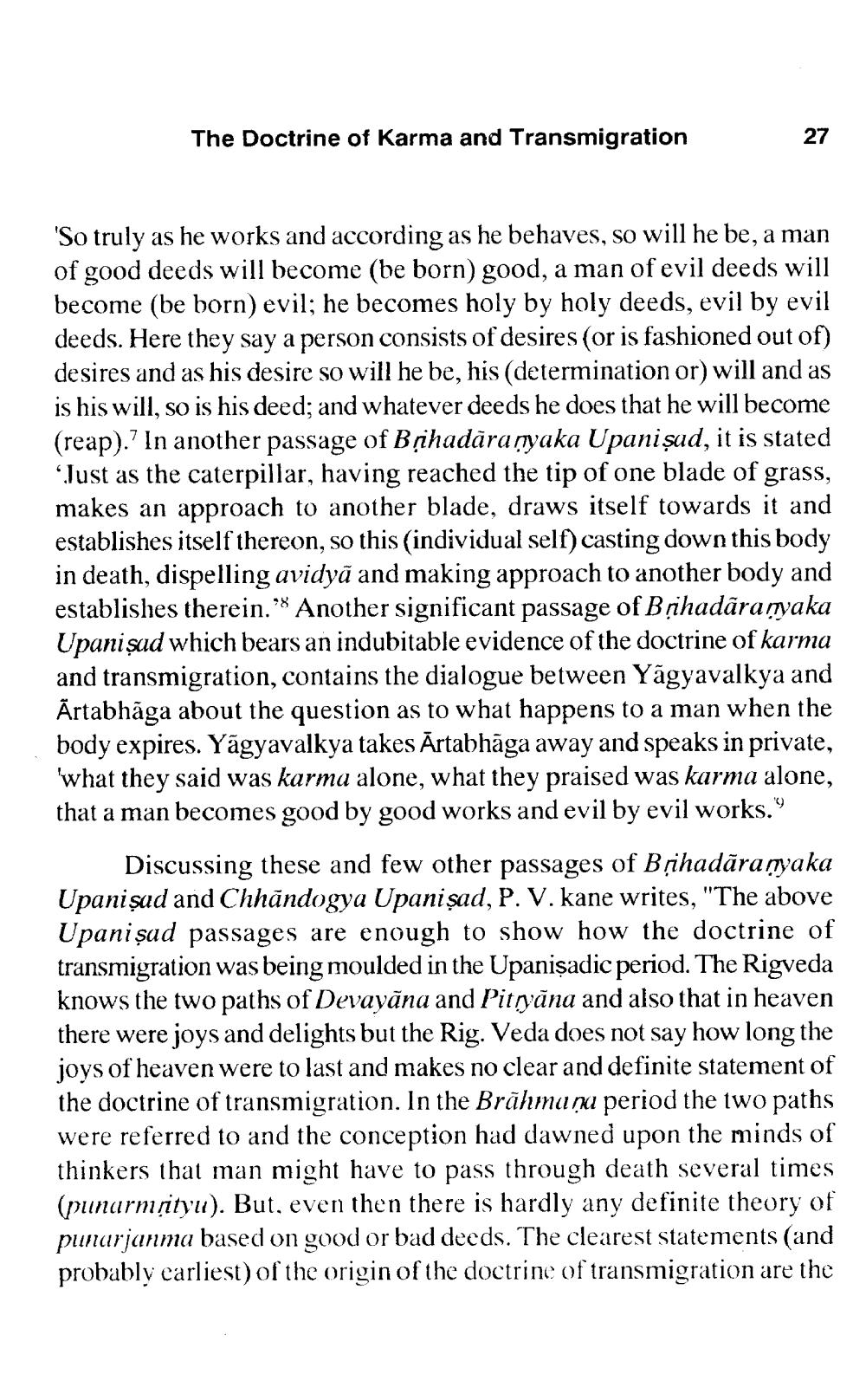________________
The Doctrine of Karma and Transmigration
2277
'So truly as he works and according as he behaves, so will he be, a man of good deeds will become (be born) good, a man of evil deeds will become (be born) evil; he becomes holy by holy deeds, evil by evil deeds. Here they say a person consists of desires (or is fashioned out of) desires and as his desire so will he be, his (determination or) will and as is his will, so is his deed; and whatever deeds he does that he will become (reap). In another passage of Brihadaraṇyaka Upaniṣad, it is stated 'Just as the caterpillar, having reached the tip of one blade of grass, makes an approach to another blade, draws itself towards it and establishes itself thereon, so this (individual self) casting down this body in death, dispelling avidya and making approach to another body and establishes therein." Another significant passage of Bṛihadaraṇyaka Upanisad which bears an indubitable evidence of the doctrine of karma and transmigration, contains the dialogue between Yagyavalkya and Ärtabhaga about the question as to what happens to a man when the body expires. Yagyavalkya takes Ārtabhāga away and speaks in private, 'what they said was karma alone, what they praised was karma alone, that a man becomes good by good works and evil by evil works."
Discussing these and few other passages of Bṛihadāraṇyaka Upanisad and Chhandogya Upanisad, P. V. kane writes, "The above Upanisad passages are enough to show how the doctrine of transmigration was being moulded in the Upanisadic period. The Rigveda knows the two paths of Devayana and Pitryāna and also that in heaven there were joys and delights but the Rig. Veda does not say how long the joys of heaven were to last and makes no clear and definite statement of the doctrine of transmigration. In the Brahmana period the two paths were referred to and the conception had dawned upon the minds of thinkers that man might have to pass through death several times (punarmrityu). But, even then there is hardly any definite theory of punarjanma based on good or bad deeds. The clearest statements (and probably earliest) of the origin of the doctrine of transmigration are the




